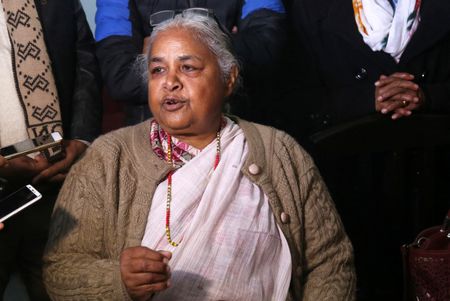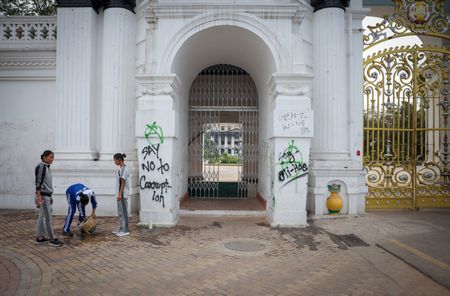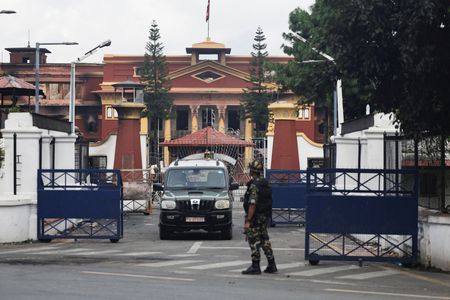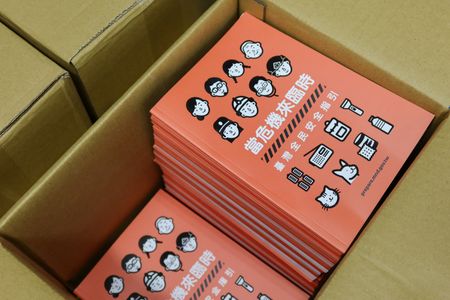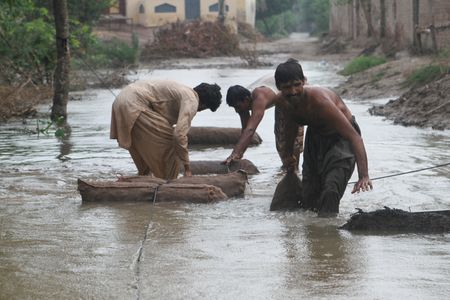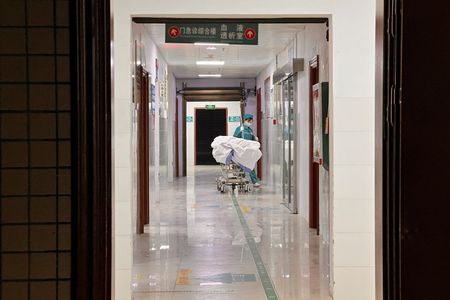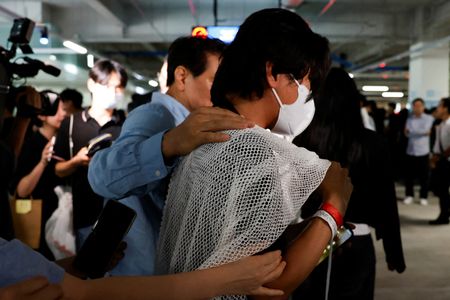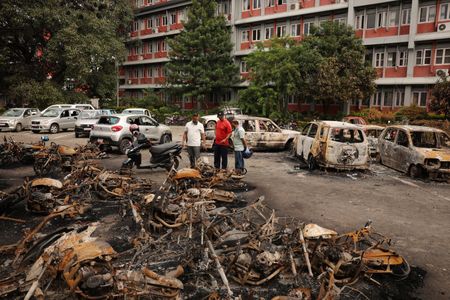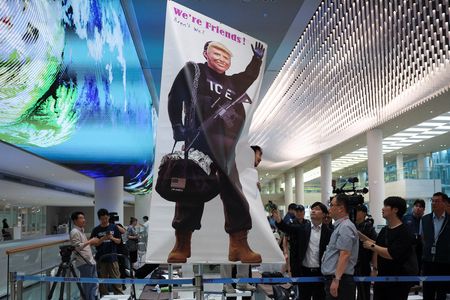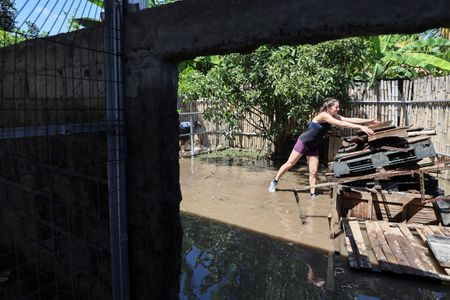By Gopal Sharma and Aftab Ahmed
KATHMANDU (Reuters) – Nepal’s former chief justice, Sushila Karki, is likely to be appointed as interim prime minister, a source aware of the talks told Reuters on Friday, after intense anti-graft protests led to the resignation of K.P. Sharma Oli.
The Himalayan nation’s worst upheaval in years, which killed 51 people this week and injured more than 1,300 as police fought to control crowds, was sparked by a social media ban, now rolled back. The violence subsided only after Oli resigned.
“Sushila Karki will be appointed interim prime minister,” said a constitutional expert consulted by President Ramchandra Paudel and army chief Ashok Raj Sigdel, who sought anonymity as the negotiations are sensitive.
“They (Gen Z) want her. This will happen today,” the source added, referring to the ‘Gen Z’ protesters whose popular name derives from the age of most participants.
Nepal’s first and only female chief justice, Karki, 73, is known for her honesty, integrity, and stand against corruption.
Her appointment is likely to be formally made after a meeting at Paudel’s residence, rescheduled to Friday afternoon from an initial time in the morning, according to a Gen Z source involved in the talks.
The president’s office and the army spokesperson did not respond to a Reuters request for comment on the matter.
RESTORATION OF NORMALCY
Wedged between India and China, Nepal has grappled with political and economic instability since the abolition of its monarchy in 2008, while a lack of jobs drives millions to seek work in other countries and send money home.
Shops began reopening on Friday, among signs that normalcy was returning in the capital of Kathmandu, with cars in the streets and police personnel taking up batons instead of the guns they carried earlier in the week.
Some roads stayed blocked, though streets were patrolled by fewer soldiers than before. Authorities began handing to families the bodies of their loved ones killed in the protests.
“While his friends backed off (from the protests), he decided to go ahead,” Karuna Budhathoki said of her 23-year-old nephew, as she waited to collect his body at Kathmandu’s Teaching Hospital.
“We were told he was brought dead to the hospital.”
The 51 dead included 21 protesters, nine prisoners, three police officers and 18 others, police spokesperson Binod Ghimire said, without elaborating.
Another protester who died, Ashab Alam Thakurai, 24, got married only a month earlier, his relatives said.
“The last we spoke to him … he said he was stuck with the protest. After that we could not contact him … eventually we found him in the morgue,” said his uncle, Zulfikar Alam.
(Reporting by Gopal Sharma and Aftab Ahmed; Writing by Sakshi Dayal; Editing by Clarence Fernandez and YP Rajesh)

